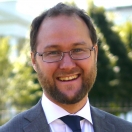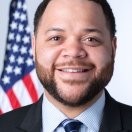
“We don't have enough money or time or resources to invest in things that don't work, so we've got to be pretty hard-headed about saying if something is not working, let’s stop doing it. Let’s do things that work. And we shouldn’t care whether it was a Democratic program or a Republican program, or a faith-based program or -- if it works, we should support it. If it doesn’t, we shouldn’t.”-President Obama, February 27, 2014, the launch of My Brother’s Keeper
When President Obama launched My Brother’s Keeper (MBK), he spoke to the nation about the urgency of making sure we address the persistent opportunity gaps that prevent far too many of our children from achieving their dreams. He spoke about the urgency of making sure every kid in this nation – no matter their background or neighborhood – knows that their country cares about them and values them and is willing to invest in them. But, he also spoke about the urgent need to focus on evidence, data and results, or more simply investing in what works and building on what works.
The startling disparities facing boys and young men of color didn’t happen overnight. They are persistent, complex, complicated, chronic challenges that will take a gargantuan effort to address. However, the President made it clear at the launch of MBK that despite the enormity of these kinds of challenges, we increasingly know what works and when it works. And, we know that if we’re serious about effecting meaningful change we have to be willing to replace anecdotes and headcounts with proof and measurable progress.
This is core to the mission of MBK and to the Administration’s long-standing commitment to the use of evidence and data so that we can drive measurably better outcomes for communities in need. Through these tools, service providers can learn, course correct, and continually improve their services. And where they learn that something’s just not working, they can shift resources to something that does.
For these reasons, My Brother’s Keeper is rooted in research that has identified key milestones on the path to adulthood that are especially predictive of later success, and where interventions can have the greatest impact. At each of these markers, we see some children start to fall behind. Although the factors that influence success at each stage are complex and interdependent, by focusing on these milestones, doing what works and removing or avoiding roadblocks that hinder progress, we can provide young people the opportunity and the tools to get ahead. As the former director of the Social Innovation Fund and the current director of the Office of Social Innovation, both of us have seen firsthand scores of innovative, evidence-based programs that are strengthening communities and transforming lives. We’ve also seen numerous communities change the game for their citizens when they started to collect data, create dashboards and become transparent about success and failure.
Doing what works for MBK means not accepting the status quo when the status quo continues to put so many kids on a path from school to prison, instead of a path to success. Doing what works means we deploy the proven solutions that maximize the chances that young people can reach their full potential – for themselves, their communities and our country.
The over two hundred cities, counties, and tribes across the country that have accepted the MBK Community Challenge are creating and implementing strategies to improve life outcomes for all young people. They are assessing the impact of existing efforts and proposed programs and creating standards and protocols for tracking and sharing data across public agencies and community partners. This work will grow the number of programs likely to deliver positive results to all children and improve programs that don’t meet their own objectives. Data and evaluation are key tools in identifying what works. This takes a lot of effort. That’s why we are happy to highlight two new efforts launching this week to help those inspired by MBK to identify evidence and act on it:
Just this week, the White House Office of Social Innovation launched the MBK What Works Technical Assistance Series to help individual MBK Communities and stakeholders better understand and use data and evidence in order to make measurable progress on each of the six MBK milestones that extend from cradle-to-college-and-career. Later this year, we’ll host an MBK What Works Forum to shine a spotlight on the many programs and interventions that are yielding extraordinary results for our kids and communities.
And today, our team will join the inaugural convening of RISE for Boys and Men of Color in Chicago to celebrate RISE’s commitment to support the development of relationships between university-based scholars and researchers and MBK Communities. RISE (Research, Integration, Strategy, and Evaluation) for Boys and Men of Color is a $10 million field advancement effort supported by the Atlantic Philanthropies, the Annie E. Casey Foundation, the W.K. Kellogg Foundation, and the Marguerite Casey Foundation. The initiative aims to better understand and strategically improve the lives, experiences, and outcomes of boys and men of color in the United States. One of the strategies that RISE is using to achieve its goals is to bring together networks of committed individuals and organizations to collaborate, share knowledge and effective strategies, leverage relationships and access to resources, and demonstrate solidarity in support of boys and men of color.
RISE has identified scholars that conduct evaluation and research that is asset-based, rooted in communities, interdisciplinary, and that aims to improve policies and systems. Today it was announced that the scholars identified by RISE will explore partnerships with individual MBK Communities across the country. RISE is committed to supporting these partnerships to leverage data and evidence to identify what works, with the goal of shedding new light on how to create more positive futures.
When launching MBK, the President said we have to recognize “that “my neighbor’s child is my child” -- that each of us has an obligation to give every child the same chance this country gave so many of us.” It is clear the nation has taken this call to action seriously, and together with hundreds of communities, scores of foundations and business, nearly every agency in the federal government and enthusiastic and active citizens, we are upholding that obligation and getting closer to measurable, tangible impact every day.



